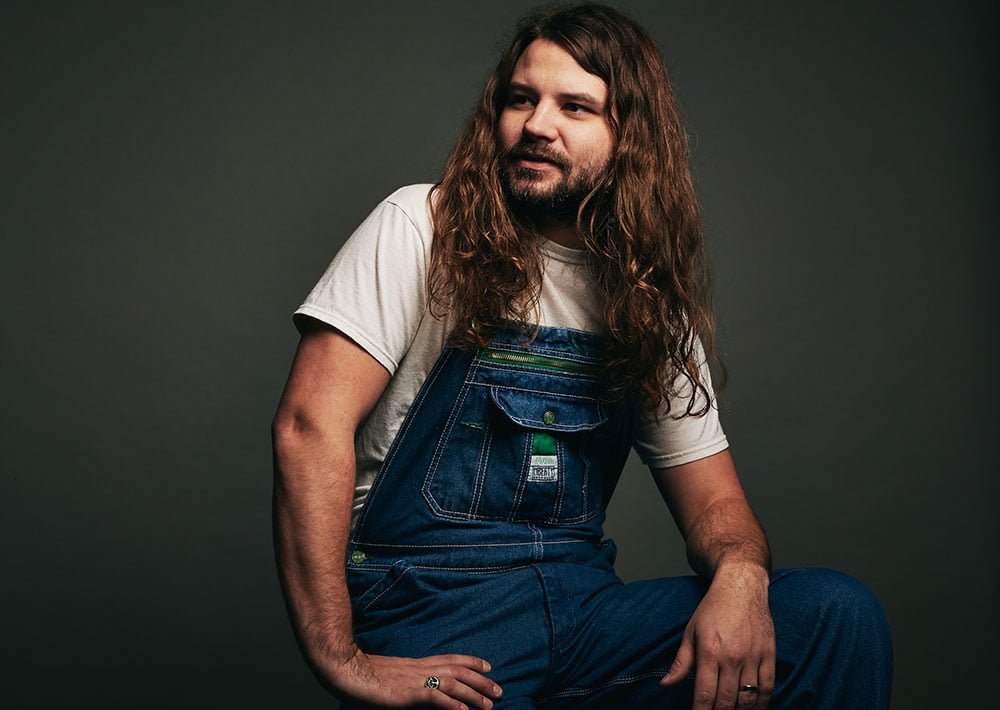
Brent Cobb: “Usually in a co-write there’s one person that’s conducting the train.”
We chat to a country singer following the likes of Willie Nelson by releasing a collection of traditional gospel songs
Whether you listen to a single song, one of his albums or his entire body of work to date, Brent Cobb’s music delivers. With each album revealing something more of the people, places and life lessons that make Cobb the person and songwriter that he is, they’re also part of one long personal story. Dive into any of his albums, Shine On Rainy Day, Providence Canyon, or 2020’s Keep Em On They Toes, and the chances are you’ll listen right through to the final note before jumping straight into the next record.
The latest offering from the Americus, Georgia-born country artist is And Now Let’s Turn To Page… Produced by cousin and long-time collaborator Dave Cobb, it’s a collection of traditional gospel songs, such as Just A Closer Walk With Thee and Old Rugged Cross, and one original composition. Doffing their wide-brimmed hats to the songs of the church is something of a rite of passage for many country artists, including Willie Nelson, Loretta Lynn and Johnny Cash, and Cobb’s addition to the genre is a fine example of someone paying respects to their roots while adding a bit of their own style (not least on the Southern rock-infused Are You Washed In The Blood?).
Keen to know what this new album brings to Cobb’s ongoing story, we caught up over a Zoom call…
Click here for more interviews
Where did the idea for the album come from?
“First, just historically, there would be no country music without gospel music and then, all of my heroes used to do it. If you were a country singer, at some point you would make some sort of gospel album. So I always knew that someday I would too. I grew up with all of these songs in the American South, in a little country church, and these were sort of the Southern gospel greatest hits. I didn’t know when I would do it but then, my son and I, in July of 2020, got into a car accident. A car ran a little rural four-ways stop sign and T-boned us. I only broke my collarbone and my son was completely fine, didn’t get hurt at all. But that really influenced the timing. I was like, ‘I should just go ahead and make this album.’ Also, the state of the world, these songs have always uplifted my spirits.”
How did you whittle down the possible options to the eight traditional songs we hear on the album?
“There are a lot more but these were the ones that, in my area of the States, they’re the most performed at the churches. My dad leads the singing in the church that I grew up in and so I would hit him up, and my sister and I would go, ‘Hey, here’s my list that I have of the songs, is there anything that I’m missing?’ So they helped a little bit with picking the songs as well.”
When tackling a song like Just A Closer Walk With Thee, which has been done by many other artists, do you have a duty of care and an obligation to do it justice?
“It’s funny, that song was the first song that Dave and the band and I really found a groove on for this album. Our goal from the beginning was to make all of the songs sound as close to home as we could and we just wanted it to feel like it feels. So I guess, yes, we wanted to treat it with care but not because of who had performed it before. We wanted to make it sound natural and to sound authentic.”
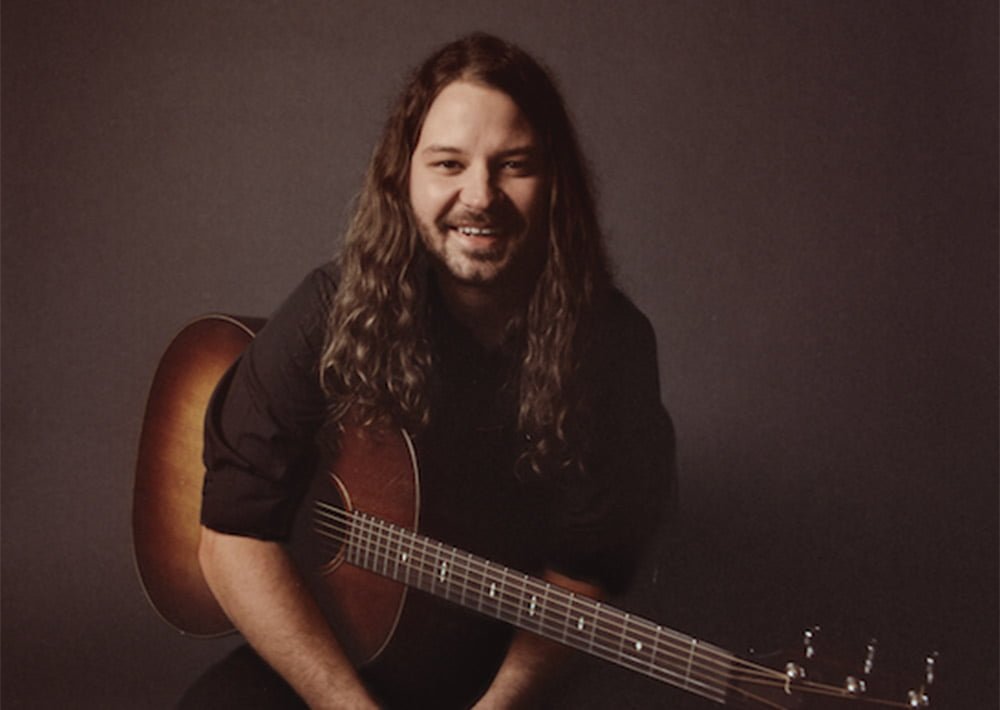
Brent Cobb: “If you’re a creative person you know that you’re channelling something, whether that’s your subconscious or a higher power.” Photo: Alysse Gafkjen
What key ingredients does a song need in order to sound authentic?
“It’s hard to say. You don’t know until it happens. I don’t think you can go, ‘Well this is what being authentic is,’ before you do it. You just do it and then you know that it’s the way it’s supposed to sound, it sounds natural.”
Was there any temptation to change lyrics or melodies? As a songwriter, do you want to add your own spice to things?
“Yeah, and I think we did on some of them. We Shall Rise is a super-traditional gospel song that we went a little crazy on and Are You Washed In The Blood, we turned that into Lynyrd Skynyrd or something.
“When I went in, I wanted to make a Jerry Lee Lewis country-style album, you know, some of his records from ’68-79, all those country albums. I’ve been into a lot of that and I love the sound of those records. And so my excuse, partly, was that I should make a gospel album so I can make songs sound like Jerry Lewis. We went in with that idea and then it just slowly evolved. We recorded a couple of them that way and then, once we came across Just A Closer Walk With Thee, then we went back and revisited some of those we’d already recorded”
At what point did you decide to add an original song to the album?
“Most of my albums, I write all of the songs except for one. I’ll record a song that I didn’t write on each album. On this album, it’s the complete opposite and it was intentional. I wanted to do a whole gospel album of traditional songs but I did want to have one song on there that I wrote. Originally, that one song was going to be the song called Hold Me Closely that I wrote when I was 17. It’s sort of a gospel song and it was also my first cut as a songwriter, The Oak Ridge Boys recorded it.
“That was the plan, then Dave and I were sitting in the studio waiting for the engineers to get stuff patched up and I was reciting the words to When It’s My Time. I had just written it and it was inspired by the wreck and by my grandmother and the way that she views her life and the world; that when it’s her time to go, it ain’t up to her. So I got finished reciting it and Dave was like, ‘That sounds like a gospel song. We should record that.’”
Listening to the album, it doesn’t sound at all out of place alongside those classic gospel songs. Was that what you were hoping to achieve?
“Since I’m so close to those gospel songs, they have heavily influenced my way of writing anyway, naturally. So I think you could probably put a lot of my songs on this same album, because they are so interconnected. They’ve influenced me my whole life.”
Did you have the melody and chords at that point, as well as the lyrics you read to Dave?
“I already had the melody and the chords. The night that my wife and I wrote When It’s My Time, we were talking about my grandma. We do this family gathering the day after Thanksgiving, every year since 1989. A lot of friends and family come in and my grandma always wants to put people up at her house because she likes to get up and cook them biscuits and gravy in the morning, a Southern delicacy. In 2020 it was like, ‘I don’t know if it’s a good idea for people to stay at Grandma’s house because we don’t want to risk her health.’
“And then I thought well, Grandma, being the God-fearing lady that she is, she figures that when it’s her time to go, it’s not up to her. For the record, nobody stayed at Grandma’s house, but we were sitting out on the porch that evening, my wife and I, and we were talking about that and then the song just kind of fell out of the sky. I knew that I wanted to write it in a sort of tip of the hat to Billy Joe Shaver, his structure, and we wrote it really quickly.”
Was it a deliberate choice to have so many family members involved with the album?
“Yeah, it was deliberate. I just came across the text that I first sent to Dave in November of 2020. I said, ‘Hey, when are we going to make that Southern gospel album?’ And he said, ‘I am 100% in, it would make our family so proud.’ It’s sort of like how we met and how we have this relationship, through gospel music and the church. The obvious goal, like I said, was to make it feel as much like home as we could. I come from a very small church and most of the congregation is my family. My aunt, growing up, played the piano in our church, my dad and my grandpa led the singing, and so it was the natural choice to involve them on this album.”
Have you always viewed songwriting as a religious or spiritual thing?
“It’s the muse. It doesn’t matter what anybody believes in, if you’re a creative person you know that you’re channelling something, whether that’s your subconscious or a higher power. I’ll tell you a couple of out-there stories…
“That song Hold Me Closely that I was talking about earlier, I was 17 and I’d always been writing since I was 12. But I sat down that day and it was like that song just fell out. I really wrote it in like 20 minutes and had no idea where it came from. Two days later, my mother’s mother passes away and that was my nana. She was my biggest fan and so then I was like, ‘Whoa, that’s where that song came from.’
“Well then, later that year me and Dave first meet and we record that on my first album. Also, before that…After my nana passes away, at the day of her viewing, I’m laying down on the couch waiting for people to come over to the house and bring food and a covered dish. I fall asleep and I have a dream. In this dream, I wake up and it’s the same day but everyone has arrived. I walk into my parent’s living room and there’s my nana sitting on a stool and she’s reading this big white book with gold trim. And I’m surprised to see her, not because she’s living but because she’s sitting on a stool, she had a bad back. I say, ‘Nana, what are you reading?’ And she leans the book down and she says, ‘A songbook.’ I woke up and everybody who I had just dreamed about was there, just like in the dream.
“I took that as meaning, I think there are already these songs written and every now and again one gets sent down to me. That song became the first cut I ever had as a songwriter, which also led to me signing a publishing deal and making a living at it for 16 years.”
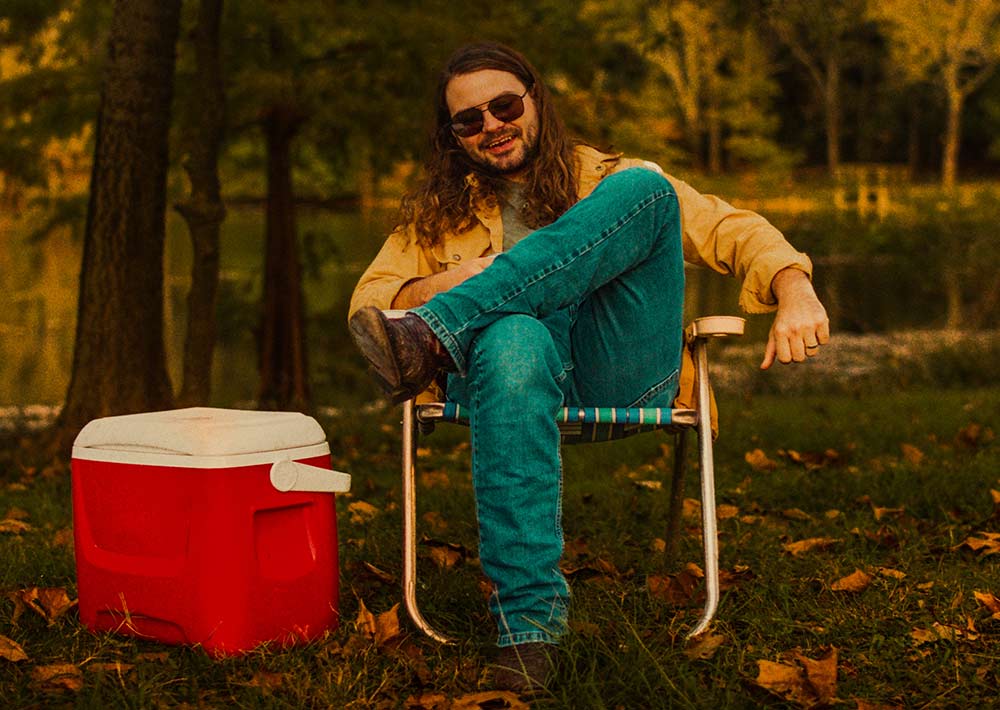
Brent Cobb: “Usually in a co-write there’s one person that’s conducting the train and everybody else helps that train move down the road.” Photo: Andrew Hutto
Have you worked out the best place for channelling the muse or can a song come at any time?
“Me and Adam Hood were talking about this, he’s a good friend of mine and I’ve co-written with him over the last 12 years. He and I are similar, we don’t really like co-writing. If I bring a song in, I usually already have the direction half-written but it’s sort of the name of the game in Nashville, you co-write with everybody. I hated it for about four or five years but the one thing about it, is it does get you to where you are working that muscle more. It still has to come naturally, but you’re sort of able to inspire the muse to happen, or maybe you just get used to recognising it through all of the static.”
Do you think talking with other songwriters improves your own writing?
“For sure, yeah, I think it’s input/output. I also think there are different kinds of writers and sometimes it just ain’t gonna work. Some people – and there’s nothing wrong with this – intentionally what they do for a living is they try to write for the commercial radio market. It’s a science and I am terrible at writing like that. It doesn’t work for me. Then there are some people who have to co-write and then there are other people, they just want to write for themselves and they don’t care if it’s ever heard. I fit somewhere in between all of that. It’s fun to ride with people like Adam Hood and Neil Medley; you kind of develop this little crew that trust you. My wife is one of them.
“Usually in a co-write there’s one person that’s conducting the train and everybody else helps that train move down the road. For example, with Hood he comes and goes, ‘I got this idea, would you help me write it?’ Then I’m gonna sit back and be an editor for what he’s already doing. Sometimes when it’s your idea and your song and it’s personal to you, you can be a little too close to it and so it helps if you have a co-writer be a real-time editor while you’re following your muse.”
Are there unique challenges that come from co-writing with your wife?
“Ah, not really, man. My wife is pretty cool and she’s way more intelligent than I am. She’s a pharmacist but she’s also got great taste in music and a really good instinct for writing songs and lyrics. She writes jokes and has a whole joke book. She’s one of the best pun stars and has a brilliant mind. There’s really nothing that we can’t talk about. She understands that this life is just an experience and we all happen to be here.”
Just as your co-writers can improve your own writing, does working on great songs like those featured on the album also help?
“I think so. I mean everything, again, is input/output. Whatever you’re listening to, whatever you’re making…. As a writer, and someone who makes their own albums, I’m always trying to find what the core and the root of what I do is. I might someday make an album that’s completely off the wall, but for me, on each project I do, I want to get closer to whatever it is that makes me tick.”
Are your hopes and expectations for this album the same as they would be for a record of original songs?
“Yeah, I think they’re the same. I know some people are going, ‘Brent Cobb’s going gospel,’ but it just feels like another album to me. It’s special I guess but I hope people listen the way that they have to the other ones. You can put on my first album and just let them all play straight through to the end of this gospel album and it will feel like one big album.”
What is your ambition for every song that you write?
“I love writing songs that are personal to my experience, they’re specific to me but I also want to find the universal truth in that personal experience in a way that other people will relate. Even if they have never specifically done what I’m saying, they know what the core emotion is. That is what I’ve tried to do every time I write a song, that’s what I try to do with every album that I make.”
Can you think of one song where you think that you absolutely nailed that?
“Shine On Rainy Day is one I think I got pretty close on. I co-wrote that with Andrew Combs but I already had the first verse, the chord structure and half the chorus and then we met. Actually, it would not have been called Shine On Rainy Day without Andrew because originally, at the end of that session, it was called Thank God For Rainy Days. Andrew took it to the house and he sent a work tape later and he had changed it to Shine On Rainy Day and I was just like, ‘Woah!’ And that’s why co-writing is cool!”
Brent Cobb’s album And Now Let’s Turn To Page… is out now via his own label Ol’ Buddy Records and he is currently out on tour. For all the dates head to brentcobbmusic.com
Click here for more interviews

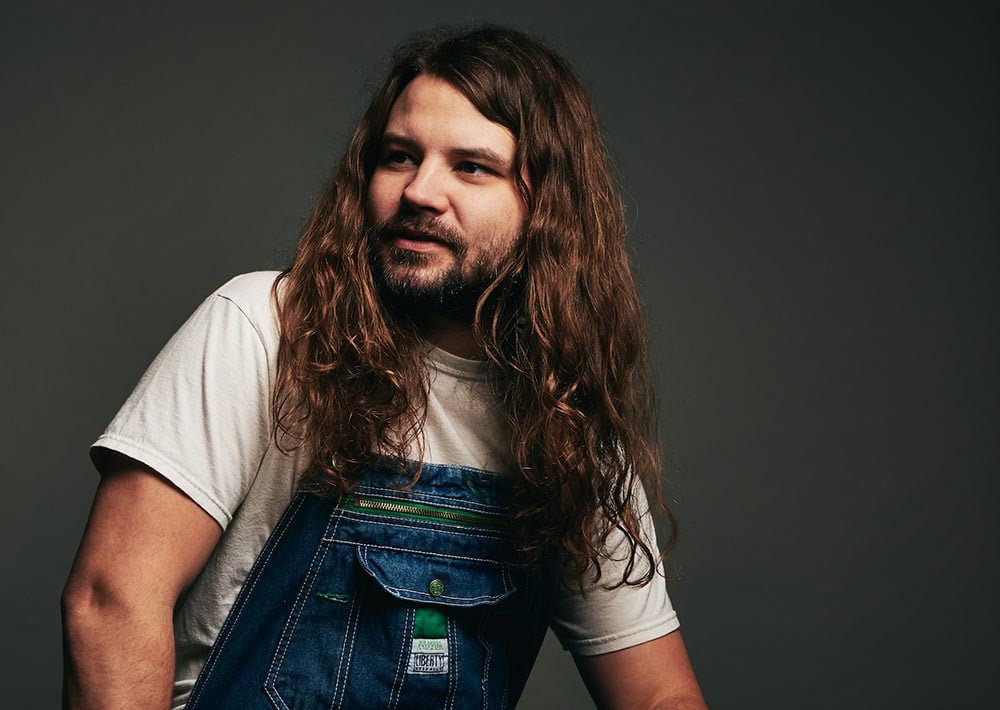
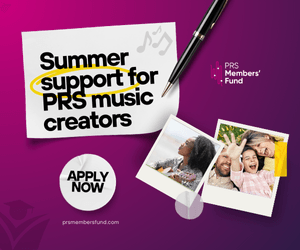
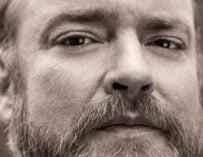
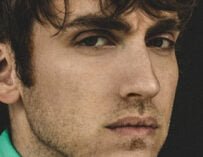

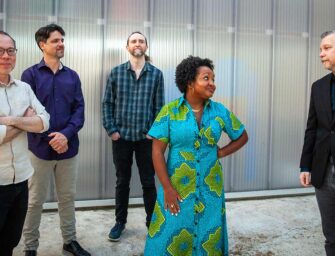
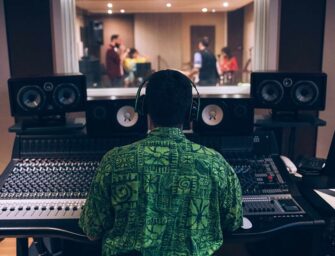

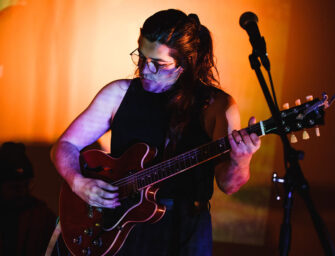





















Related Articles